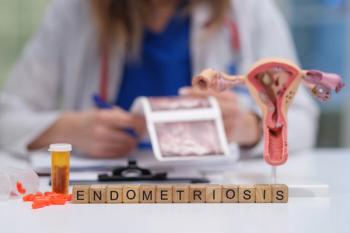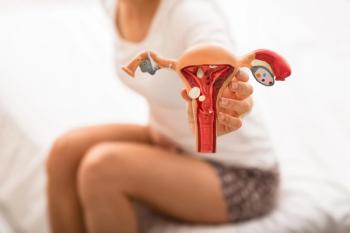
Dietary interventions to treat endometriosis
Most studies conclude that dietary interventions positively impact endometriosis, according to a systematic review in the journal Reproductive Sciences.
By conducting an electronic literature search of MEDLINE and COCHRANE, the authors identified nine human and 12 animal studies, all written in English. Two of the human studies were randomized controlled trials, 2 controlled studies, 4 uncontrolled before-after studies and one qualitative study.1
Studies were from Italy, Austria, Sweden, Australia, Mexico and Iran, with follow-up ranging from 4 weeks to 12 months.
All the studies evaluated a different dietary intervention, for which the authors classified in 1 of 3 principle models: supplementation with selected dietary components, exclusion of selected dietary components and complete diet modification.
Interventions comprised supplementation of vitamin D; supplementation of vitamins A, C and E; supplementation of omega-3/6; quercetin; vitamin B3; 5-methyltetrahydrofolate calcium salt, turmeric and parthenium; the Mediterranean diet; the low fermentable oligosaccharides, disaccharides, monosaccharides and polyols (FODMAP) diet; the low nickel diet; the gluten-free diet; and individual diet changes.
Despite most studies reporting a positive effect on endometriosis, the studies had moderate or high-risk bias, perhaps due to the challenges of conducting dietary intervention trials. The studies also had high heterogeneity.
The authors were unable to succinctly identify subcategories of patients most likely to benefit from a dietary intervention. However, based on the promising results of a prospective study published in The Journal of Aging Research and Clinical Practice in 2012 that found that a Mediterranean diet decreases endometriosis-associated pain2, along with the well-known health benefits and no risks of the diet, the authors believe physicians should consider this diet as a long-term dietary change.
The study’s nutrition plan included fresh vegetables, fruit, white meat, fish rich in fat, soy products, whole meal products, foods rich in magnesium and cold-pressed oils, while avoiding sugary drinks, red meat, sweets and animal fats.
However, due to the challenges of adhering to the Mediterranean diet, including costs and cooking habits, a supplementary antioxidant diet can be considered instead for up to 6 months. But longer than 6 months of dietary supplements cannot be recommended because their long-term safety is unclear.
Conversely, patients with gastrointestinal-related abdominal pain, bloating and constipation, or suspicion of visceral hypersensibility, may benefit from a gluten-free, low nickel or low-FODMAP diet.
Still, these diets may cause lower adherence, due to the financial burden and inherent difficulties. Also, the safety of a low nickel diet long-term has not been validated, whereas a long-term low FODMAP diet can negatively impact gut microbiota.
The authors encourage physicians to embrace an evidence-based clinical approach during consultations with their patients. The start of any of these diets should also be decided by a multidisciplinary team, after gastrointestinal evaluation to exclude other pathological diagnoses.
“Further well-designed randomized controlled trials are needed to accurately determine the short-term and long-term effectiveness and safety of different dietary interventions,” wrote the authors.
References
- Nirgianakis K, Egger K, Kalaitzopoulos DR, et al. Effectiveness of dietary interventions in the treatment of endometriosis: a systematic review. Reprod Sci. 2022 Jan;29(1):26-42.
- Ott J, Nouri K, Hrebacka D, Gutschelhofer S, et al. Endometriosis and nutrition-recommending a Mediterranean diet decreases endometriosis-associated pain: an experimental observational study. J Aging Res Clin Practice. 2012;1:162–166.
Newsletter
Get the latest clinical updates, case studies, and expert commentary in obstetric and gynecologic care. Sign up now to stay informed.









